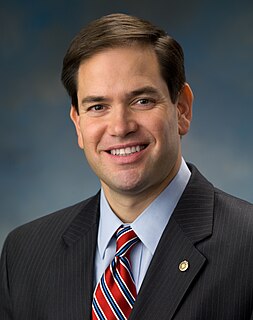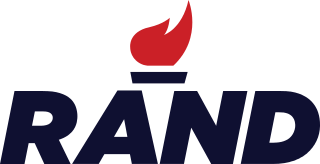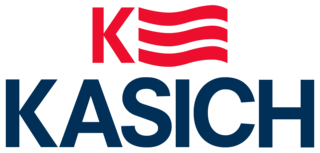The following is a timeline of major events leading up to and immediately following the United States presidential election of 2008. The election was the 56th quadrennial United States presidential election. It was held on November 4, 2008, but its significant events and background date back to about 2002. The Democratic Party nominee, Senator Barack Obama of Illinois, defeated the Republican Party's nominee, Senator John McCain of Arizona.
The following is a timeline of major events leading up to the United States presidential election of 2012. The election was the 57th quadrennial United States presidential election and was held on November 6, 2012.

This article contains lists of notable candidates for the United States Republican Party's 2012 presidential nomination.
This article contains the list of candidates associated with the 2016 Republican Party presidential primaries for the 2016 United States presidential election.

The 2016 Republican Party presidential primaries and caucuses were a series of electoral contests that took place within all 50 U.S. states, the District of Columbia, and five U.S. territories between February 1 and June 7, 2016. Sanctioned by the Republican Party, these elections selected the 2,472 delegates that were sent to the Republican National Convention. Businessman and reality television star Donald Trump won the Republican nomination for president of the United States.
The following is a timeline of major events leading up to, during, and after the United States presidential election of 2016. The election was the 58th quadrennial and most recent United States presidential election, held on November 8, 2016. The presidential primaries and caucuses were held between February 1 and June 14, 2016, staggered among the 50 states, Washington, D.C., and U.S. territories. The U.S. Congress certified the electoral result on January 6, 2017, and the new President and Vice President were inaugurated on January 20, 2017.

The 2016 United States Senate election in Florida was held November 8, 2016 to elect a member of the United States Senate to represent the State of Florida, concurrently with the 2016 U.S. presidential election, as well as other elections to the United States Senate in other states and elections to the United States House of Representatives and various state and local elections. The primary elections for both the Republicans and Democrats took place on August 30, 2016.

The 2016 presidential campaign of Rand Paul, the junior United States Senator from Kentucky, was announced on April 7, 2015 at an event at the Galt House in Louisville, Kentucky. First elected to the U.S. Senate in the 2010 election, Paul's candidacy for the Republican nomination for President of the United States in 2016 had been widely speculated since early 2013.
The twelve Republican presidential debates, and the nine forums, were a series of political debates held between the candidates for the Republican Party's nomination for the 2016 United States presidential election.
This is a list of notable political endorsements for declared candidates for the Republican primaries for the 2016 United States presidential election. Endorsements are part of the "invisible primary" process, which occurs not only long before the general election in November 2016, but also largely occurs before even the caucuses and primaries have begun in February 2016.
The 2016 presidential campaign of Ted Cruz, the junior United States Senator from Texas, was announced on March 23, 2015. He was a candidate for the Republican Party's 2016 presidential nomination and won the second-most state contests and delegates. Cruz themed his campaign around being an outsider and a strict conservative. In the crowded early field, he chose not to directly confront the leading candidate, Donald Trump, who was also viewed as an outsider candidate. His cordial and sympathetic tone towards Trump contrasted with the more critical approach of rivals such as Jeb Bush, Marco Rubio, and Rand Paul. Had Cruz been elected, he would have been the first Cuban American U.S. president and the first U.S. president born outside of the United States.
The 2016 presidential campaign of Marco Rubio, who is currently the senior United States senator from Florida, was formally announced on April 13, 2015, at an event at the Freedom Tower in Downtown Miami. Early polling showed Rubio, who was considered a potential candidate for Vice President by Republican presidential nominee Mitt Romney in 2012, as a frontrunner candidate for the Republican nomination for president of the United States in 2016 since at least the end of the 2012 election. Rubio was the second Cuban American to run for president of the United States, with Republican Ted Cruz announcing his campaign three weeks earlier. He suspended his campaign on March 15, 2016, after finishing second in Florida's primary.

The 2016 presidential campaign of Rick Santorum, former United States Senator from Pennsylvania, was formally announced at a rally in Pittsburgh on May 27, 2015. His campaign for the Republican nomination for President of the United States in 2016 was his second bid for the office, after having been a candidate in 2012, where he received the second most delegates after 2012 nominee Mitt Romney.

The 2016 presidential campaign of John Kasich, the 69th Governor of Ohio, was announced on July 21, 2015. He was a candidate for the 2016 Republican Party presidential nomination. He earned 154 delegates and won only one contest, his home state, Ohio. Kasich suspended his campaign on May 4, 2016, one day after becoming the last major challenger to Donald Trump for the nomination. Kasich vied to become the first Pennsylvania native to hold the office since James Buchanan in 1856, as well as the first from the city of Pittsburgh to do so.
The 2016 presidential campaign of Jim Gilmore, the 68th Governor of Virginia, was officially launched on July 30, 2015, when Gilmore filed with the Federal Election Commission (FEC) and announced his candidacy through a variety of news outlets. Gilmore suspended his campaign on February 12, 2016, after failing to qualify for inclusion in the Republican primary debates.

The 2016 New Hampshire Republican presidential primary, which took place on February 9, was the second major vote of the cycle. Donald Trump was declared the winner with 35.3% of the popular vote and picked up 11 delegates, while John Kasich emerged from a pack of candidates between 10-20% to capture second place with 15.8% of the vote and picked up four delegates.

The 2016 Nevada Republican caucuses took place on February 23 in the U.S. state of Nevada, marking the Republican Party's fourth nominating contest in their series of presidential primaries ahead of the 2016 presidential election.

The Stop Trump movement, also called the anti-Trump, Dump Trump, or Never Trump movement, was an effort on the part of some Republicans and other prominent conservatives to prevent front-runner and now President of the United States Donald Trump from obtaining the Republican Party presidential nomination and following his nomination the presidency for the 2016 United States presidential election. Although Trump's campaign drew a substantial amount of criticism, Trump received 90% of the Republican vote, while Clinton won 89% of Democratic voters. Moreover, Trump was supported by 80% of Republican members of Congress in the general election. Following Trump's election in November 2016, some in the movement refocused their efforts on defeating Trump in 2020.
The following is a timeline of major events leading up, during, and after the United States presidential election of 2020. President Donald Trump of the Republican Party, who was elected in 2016, is seeking reelection to a second term.


















